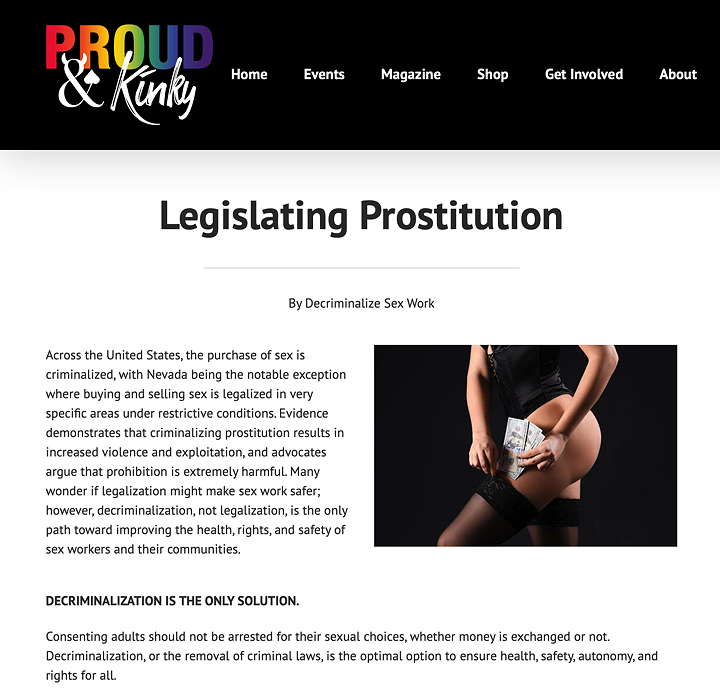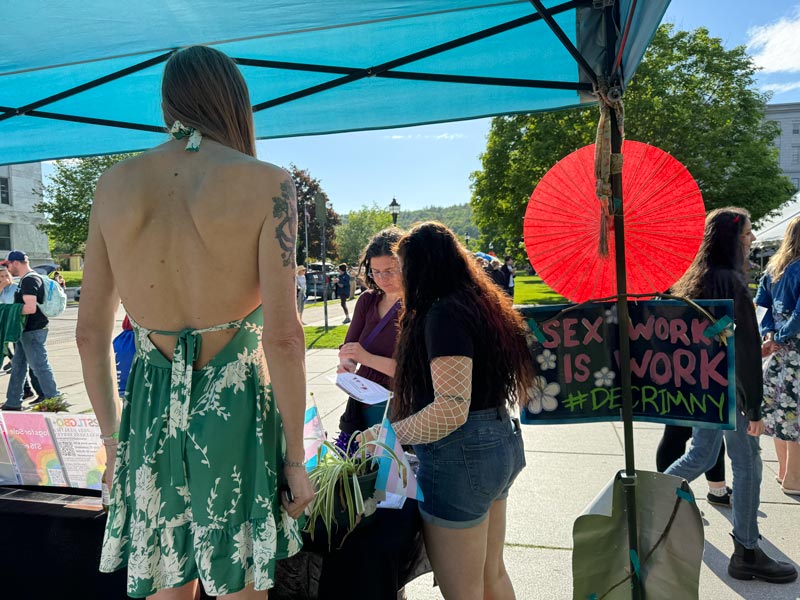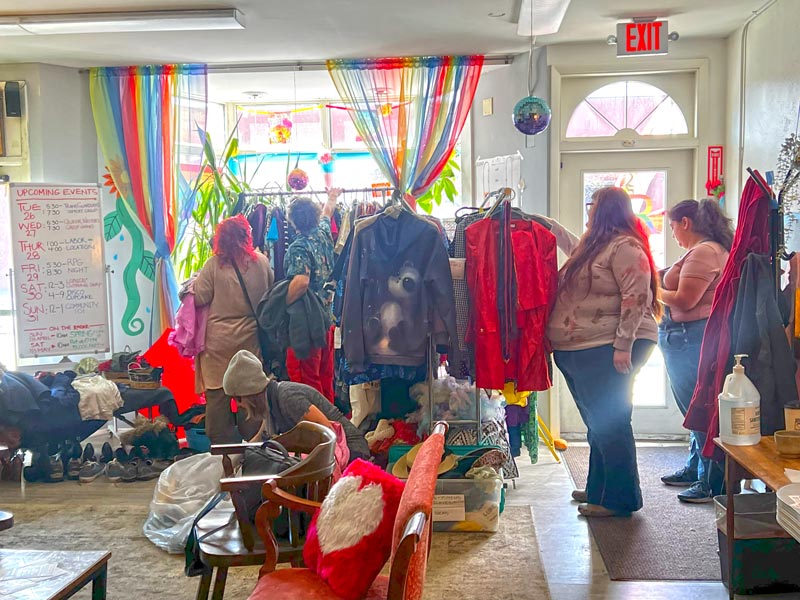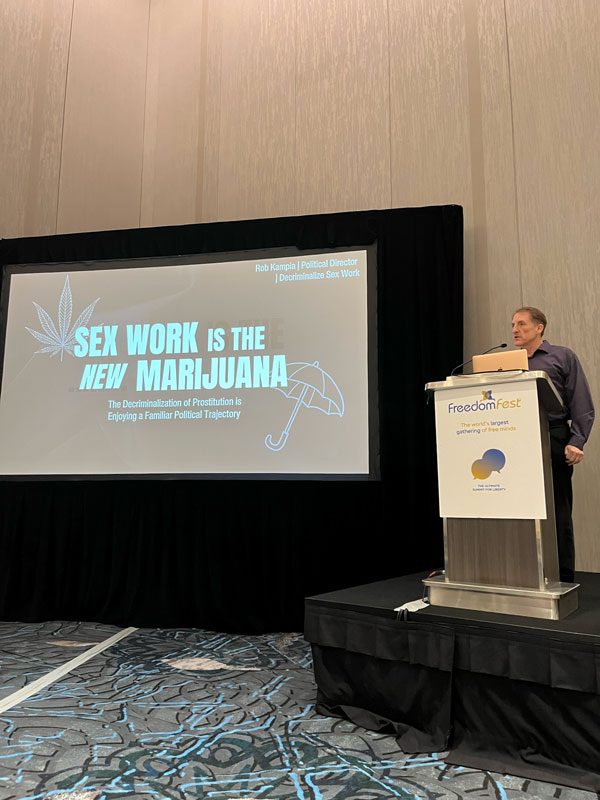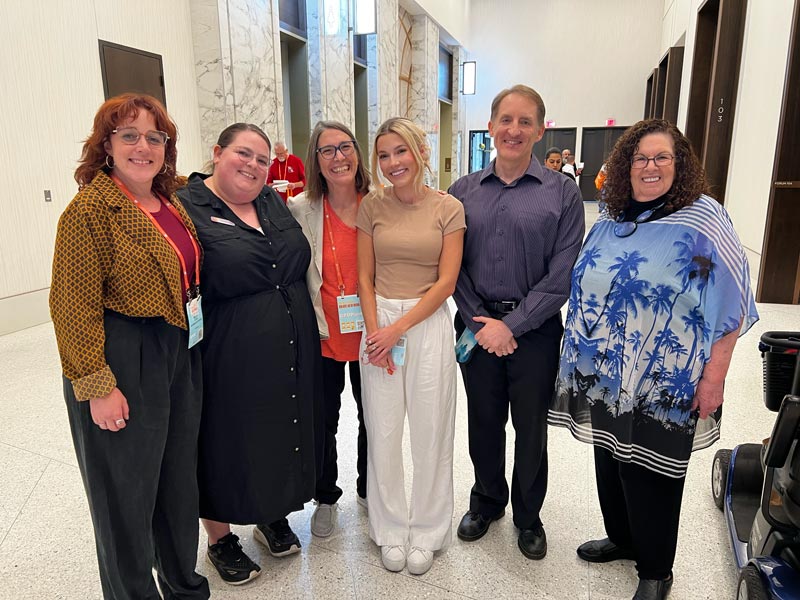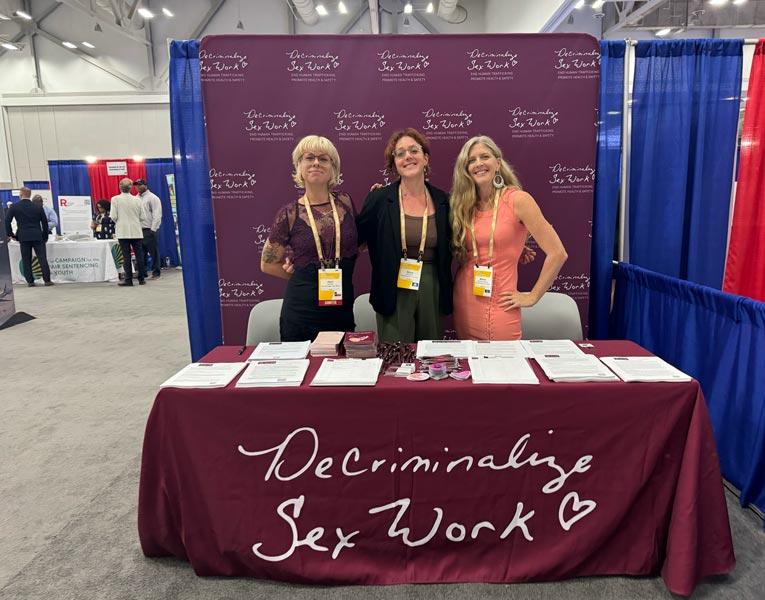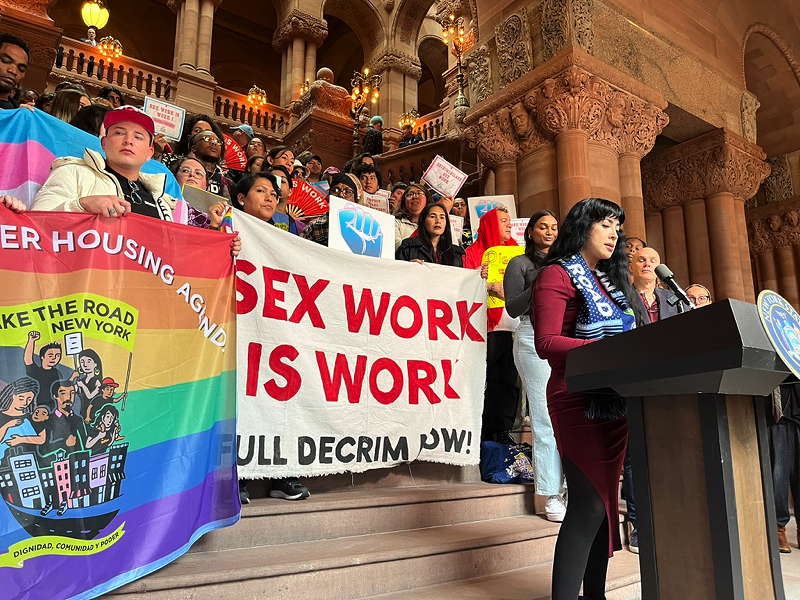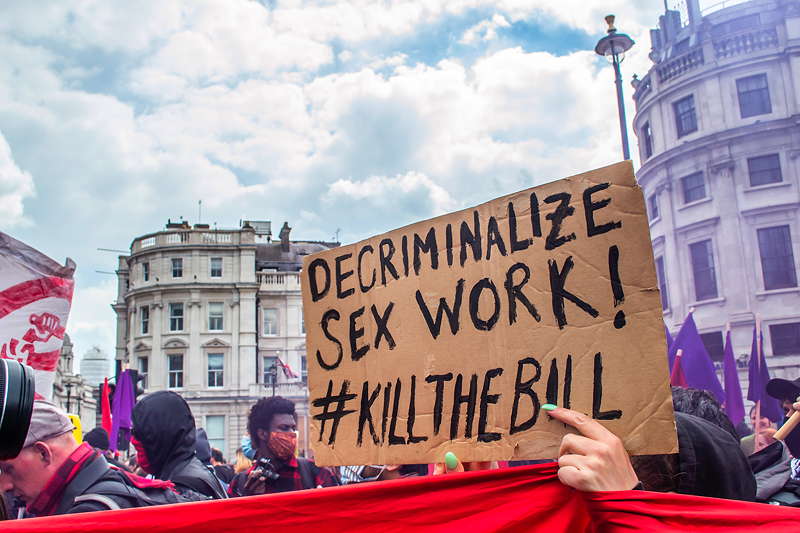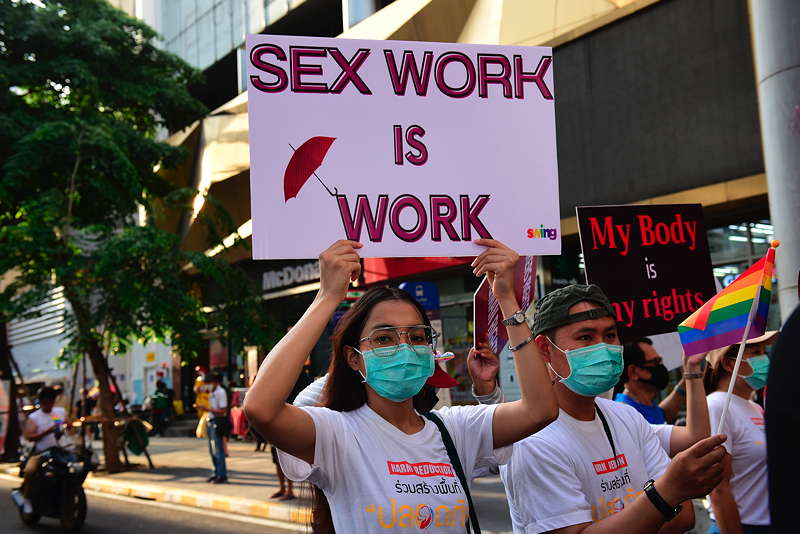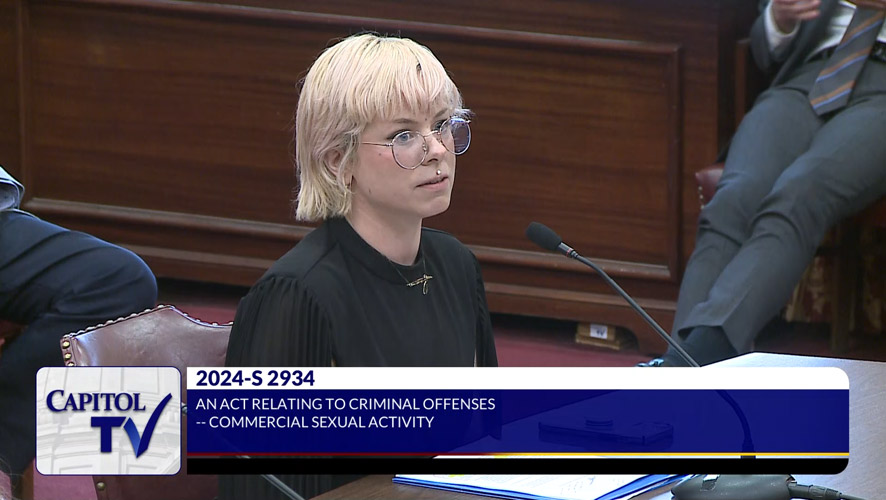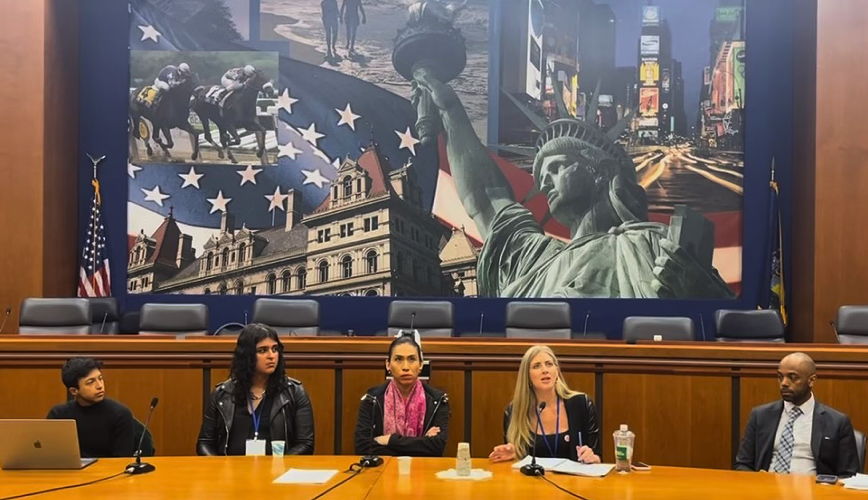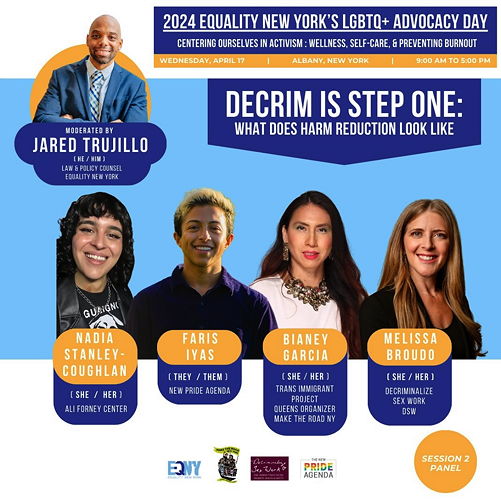DSW Newsletter #55 (Summer 2024)
DSW Attends FreedomFest in Las Vegas and NCSL in Louisville
August 15, 2024 This July, FreedomFest returned to Las Vegas for its annual conference, the “ultimate summit for liberty.” FreedomFest has been convening since 2007 and Decriminalize Sex Work (DSW) has...
Read More
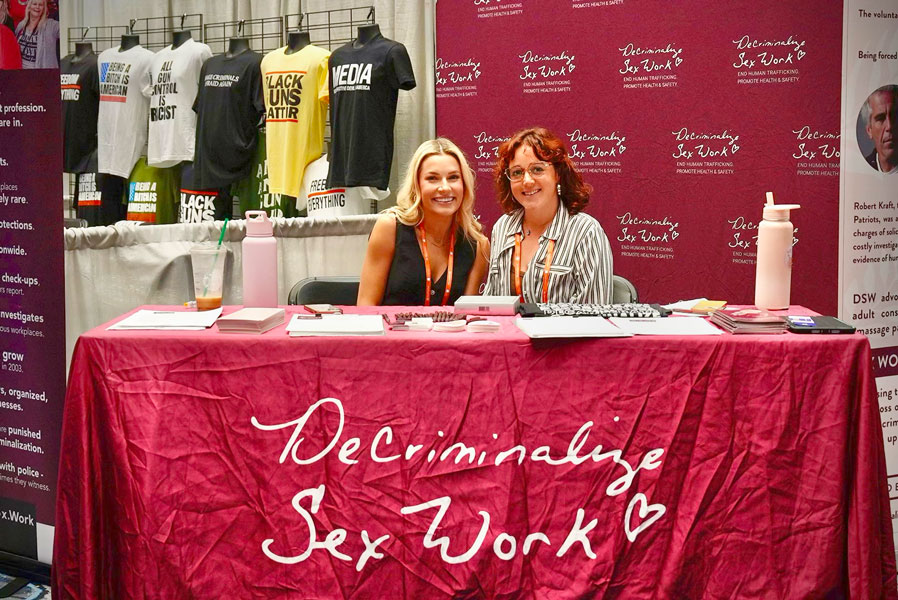
VT Advocates in Action
August 20, 2024 Advocates for the rights of sex workers and survivors of human trafficking in Vermont are partnering with organizations working on a range of issues to best meet the...
Read More
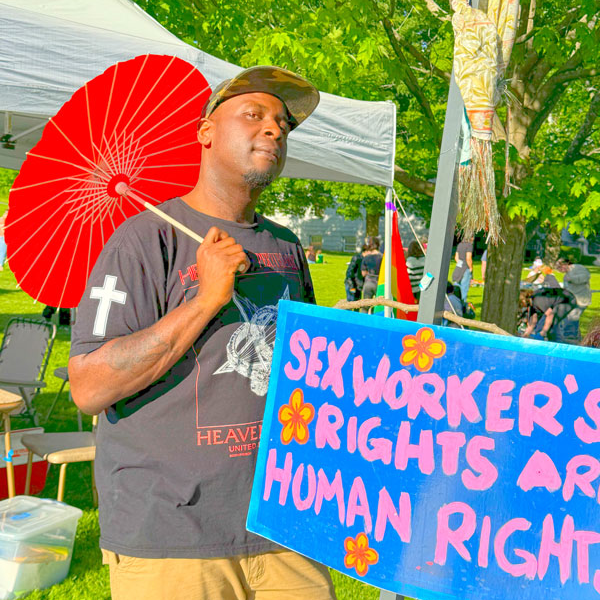
DSW in the News
DSW Newsletter #55 (Summer 2024) DSW Attends FreedomFest in Las Vegas and NCSL in Louisville August 15, 2024 This July, FreedomFest returned to Las Vegas for its annual conference, the “ultimate...
Read More
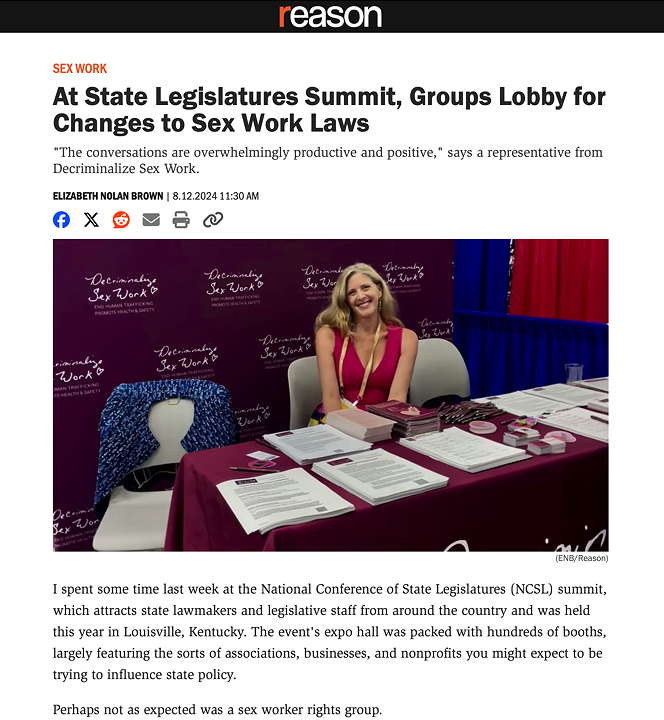
The New York Times Covers Deepfake Pornography
July 31, 2024 The New York Times recently published an article that sheds light on the severe impact of deepfake pornography on its victims. This form of digital abuse involves AI-generated...
Read More


